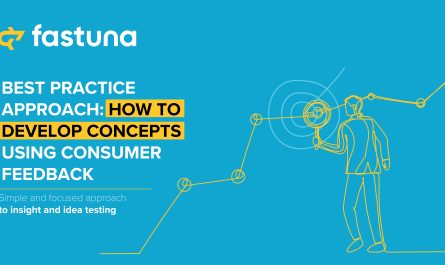5 Skills Every Insight Professional Needs to Thrive in 2025 and Beyond
Today, the insights and market research industry is worth a whopping $150 billion. As we move through 2025, that growth isn’t slowing down.
Thriving as a researcher today means staying current and competitive, learning skills that go far beyond initial training.
To help you keep up and grow with the industry, here are five skillsets that are key to defining success in 2025 and beyond.
Why the insights role is changing (fast)
So, what exactly has caused the role of insights to change so fast and dramatically?
There’s no doubt AI has played a massive part in this shift. Today, 83% of market research professionals say their organizations plan to invest in AI for their research activities in 2025.
Another notable change is that today, insights professionals must do more than collect and analyze data to stand out. Stakeholders and executives expect them to lead.
|
“We’re in the middle of a fundamental redefinition of what insights work means. It’s no longer about reporting what happened. It’s about becoming the central nervous system that helps organizations navigate complexity and uncertainty in real time.” -Thor Olof Philogène, CEO at Stravito, in “Think Deeply, Act Swiftly” |
To make that leap, insights professionals must develop the right soft and technical skills to step into a more strategic, visible role within the business.
Skill 1: Communication intelligence
Your insights are only as powerful as your ability to make them land, and that’s where communication intelligence comes in.
In the world of research, one skill communication intelligence covers is building narratives that inspire and move stakeholders to act.
In fact, 93% of enterprise decision-makers say that successfully leveraging data storytelling helps increase revenue. Likewise, 71% say data storytelling skills are very important when reporting results to the C-suite or other key business stakeholders.
Insight teams often leap straight into execution — churning out presentations, dashboards, or reports — without first thinking about the angle and story they’re telling. This leads to insights that fail to spark action.
The best insight professionals can translate complexity into clarity, by:
- Leading with structure and focusing on impact over output. They answer the “what, so what, now what” before starting projects and sharing insights.
- Sharing insights in formats that fit their audience. For example, a short video for a busy C-suite or an interactive dashboard for a product team.
Because the best insights don’t just communicate information. They persuade and motivate people.
Skill 2: Adaptability
The only constant in the insights world? Change.
Whether change involves new AI tools, shifting consumer behaviors, or changing business needs, the ability to adapt is essential for insights professionals.
A staggering 97% of analysts use AI in their workflows, with 87% leveraging automation to improve task efficiency and reporting capabilities.
But adaptability isn’t just about trying new tech. It’s also about learning quickly and using AI in specific ways that enhance, rather than flatten, your insights.
Knowing how to integrate AI strategically while preserving human insight is absolutely key here. AI can accelerate workflows, but it can’t replace the judgment and context that define real insights.
The challenge is to build an insight-led culture of agility that rewards experimentation, supports learning loops, and welcomes AI as a co-pilot, but not a complete substitute.
Skill 3: Commercial understanding
Want your insights to matter more? Then they need to make a difference in the business.
To get more involved in strategy, insights teams need to step up commercially. That means owning the revenue impact of work, showing how insights directly affect growth, and translating findings into clear business value.
Today, 57% of insight functions measure their business impact or ROI, up from just 31% in 2015. Organizations that do this well report an impressive 96% perceived ROI, compared to only 68% among those that don’t measure impact.
Insight professionals need to present themselves as trusted advisors, selecting research tools with robust analytics to demonstrate ROI and sharing information that drives behavioral change and impacts business growth.
Skill 4: Insight activation
Insights are only valuable when they’re seen, understood, and used. But as many of us know, research often gets left buried in folders or stuck in siloed tools only a few people have access to. In fact, a huge 68% of data available to enterprises is unused.
To activate and socialize your insights more effectively:
- Make them discoverable through an AI-powered, searchable, centralized research repository platform like Stravito.
- Tell a clear story using headlines, summaries, and narrative formats.
- Embed insights into team meetings, planning sessions, and workflows.
- Team up with internal champions who help spread research across the org.
- Share insights regularly via channels like Slack, newsletters, or intranet updates.
- Collaborate cross-functionally with departments to expand reach and relevance.
Remember, the value of your work doesn’t end when the research report is complete. It begins when the business starts using it.
Skill 5: Data synthesis and curation
Today, we’re surrounded by research, reports, and dashboards. But more data doesn’t necessarily mean better decisions. In fact, presenting too much information to stakeholders can be detrimental.
Approximately 50% of executives say they feel overwhelmed by the volume of data and dashboards they receive daily. Likewise, most only monitor an average of five metrics to measure their department’s success.
What matters is the ability to connect the dots, extract what’s relevant, and make meaning clear. The most impactful insight professionals pull together findings, strip away noise, and create coherent narratives that guide action.
Because in a world drowning in data, the value lies in clarity, not quantity.
Put these 5 skills into practice
Start by strengthening one skill this quarter. Determine how it connects to your business goals, find opportunities to practice it within your current projects, and track the results. If you’re comfortable, share your progress with colleagues, friends, or family to build confidence and momentum.
Curious to learn more about how the right tech can help you transform insights into business impact? Learn how Stravito can help.
Qual360 Europe is returning to Berlin in 2026!
Join us on January 28–29 to uncover the latest qualitative research methodologies, dive into real-world case studies from leading global brands, and connect with leading insights professionals from across the world.
As the only global conference series dedicated exclusively to qualitative research, Qual360 has spent 17+ years driving innovation and building a powerful international community of passionate “Quallies.”
Regular tickets are still available — secure yours before December 28th. Register today!










 by
by 


